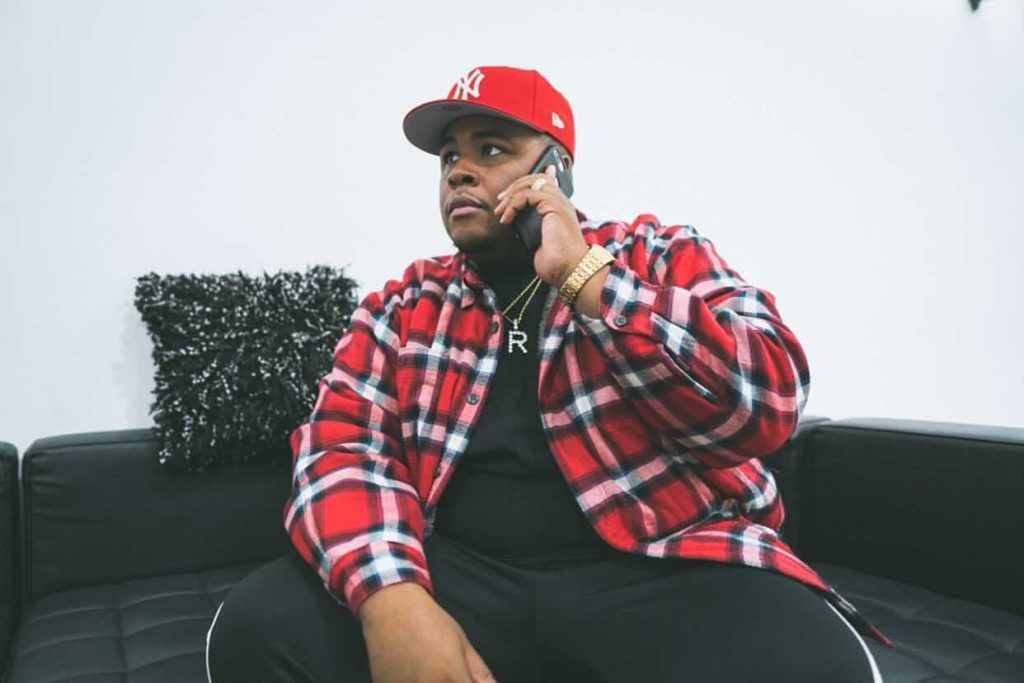The Producer’s Voice: DJ SwanQo [@DJSwanQo]
![The Producer’s Voice: DJ SwanQo [@DJSwanQo]](https://guap.co.uk/wp-content/uploads/2021/06/pastedimage-0-e1623151213252-180x180.jpeg)
Words By Miki Hellerbach
The Producer’s Voice is a new series for GUAP where we highlight the stories of instrumental crafters. We hope to bring their stories to the forefront instead of kept behind the artist they are producing for.
DJ SwanQo is the Beacon, New York producer that has played a significant role in the success of Rap megastar Cardi B.
Beacon, New York raised producer DJ SwanQo has had instrumental production credits throughout Bronx bred rapper Cardi B’s career. He even produced the first song she ever rapped on, ‘Washpoppin‘. SwanQo was also a key player amongst the team who composed her Grammy award winning album Invasion of Privacy. He was not only credited as producer and co-producer on multiple tracks but also acted as Cardi’s recording engineer for European recording sessions and even helped vocal produce on the song ‘Ring‘ feat. Kehlani.
SwanQo found inspiration to become the producer he is today through watching his grandfather and three great aunt’s Gospel Soul Rock music group. Then his mother and the church taught him singing and arranging things like three part harmonies. He carried this multifaceted musical approach to his own experimental record label for local talent at age 14. SwanQo merged the sounds of modern Hip-Hop and R&B with the sonic layers from his upbringing.
He said he needed, “To find an original sound when he couldn’t find original beats”. Fast forward three years, Brooklyn legend Lil Cease reached out on Myspace. Fast forward again a few years and a mutual friend put him in touch with Cardi B’s initial management after Pardison Fontaine found a beat of his. The rest is a history that can be told through his tracks placements and compositions.

I asked DJ SwanQo to give his backstory of three of his top instrumentals he contributed to. Take a read.
‘Get Up 10’ by Cardi B
“I made that beat working with a local artist named Jig Nice. We were like, “We need a song with an epic build up.” We crafted it and played it, then he instantly started writing. I don’t know if something came up, but he was like 8 bars in and was just like, “My bad I gotta go.” He left the studio and never came back. About a year later, I was in LA sitting with Cardi’s team and they were like she needs an intro. I was like, “I got something,” and played it. Instantly the song was knocked out. I wanted the epic strings cuz I’m into film and have a small production company. My friends laugh at me, but I watch movies with my turtle beach gaming headset on, just to hear like the high pitched strings they use in The Walking Dead. I draw from that for my actual layering and soundscaping. I tried my best to create epicness, then when that adjustment happens and the beat drops, I just needed it to hit hard.”
‘I Like It’ by Cardi B feat. Bad Bunny & J Balvin
“That was commissioned by Craig Kallman, the CEO of Atlantic Records. He took myself, J. White Did It, and another assistant engineer, and threw us into his personal studio. Craig Kallman has one of the biggest record collections of all time and apartments all over Manhattan filled with records. In this one apartment, in the back there’s this one small room with a complete professional studio setup. He put us in there and said, “I’ll be back tomorrow, whatever you need, order it, it’s on us.” J. White took the lead on that, but I had some little input. That one breakdown where it goes, “Oh that’s nice” (first instance at 00:43 for the pre chorus) that’s actually from a whole other song I found that matched, but had other percussion and things going on. It was perfect for that and J. White put it in.”
‘Up’ by Cardi B
“I made it (co-producer Yung Dza’s original beat) a little brighter. The vibe was there, but the drums I made crispier and I made the note changes a bit brighter. It’s still minor chords, but now somehow it feels Poppy and upbeat. I function in 8 by 8 (bar changes) when it comes to Pop production, because it means popular, which means most people’s ears are trained to 8 bar changes. Like starting with bass and kick and not bringing in high-hats until the next 8. A lot of modern rap songs, the simpler it is the better. 8 bar changes, heavy on the bass and kick, then keeping the listener moving. I draw from my DJ experience. If you take the 808 out when you’re in the club that doesn’t feel as good as you think it might when you’re in the studio. I’ve watched big songs where they take that out and people in the club lose their steam. The ones that keep hitting and don’t stop are the ones where, by the end, they’re sweating, tired, and go buy another drink. We can try to get out of the box, but let’s not try too hard.”
Follow DJ SwanQo on Twitter and Instagram for any and all updates!

